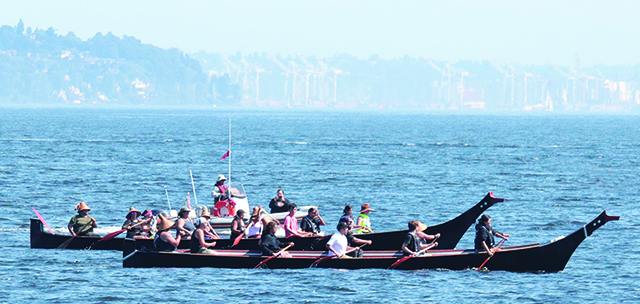
By Wade Sheldon, Tulalip News
It was still dark as the canoes entered the chilly waters of Tulalip Bay, on the early morning of July 28. Departing from Tulalip and heading south for the 30-mile journey to Suquamish, the Paddle to Muckleshoot continued as tribes gathered to make the arduous journey. The waters were choppy, and a slight wind came in from west to east, creating a tough pull for the many canoe families testing themselves.
While on the water, there are many factors to think about; watching for other vessels and predicting the wake they make is a big part of it. Sometimes when boats travel by too fast or take off too quickly, waves can rise over the edges of the canoe. So, it’s good to have someone in the skipper position who knows how to handle these situations.
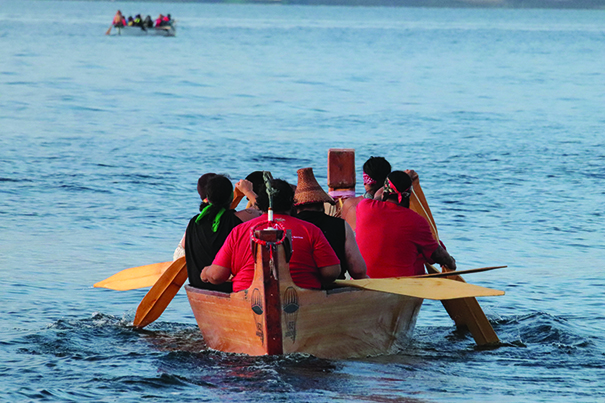
The skipper is the person sitting in the back of the canoe is usually leading the canoe. Whether telling one side to paddle harder to make turns into oncoming boat waves, or getting everyone on the same page to push harder through rough water, the skipper must know how to handle whatever the water has in store.
Andrew Gobin led one of the canoes from Tulalip to Suquamish. A few snafus occurred, like in one instance, a boat got too close, and the canoe took on some water. The skipper’s quick actions kept the canoe afloat. Turning the canoe toward shore and paddling extremely slowly, without rocking, they made it ashore safely, where they emptied the canoe.
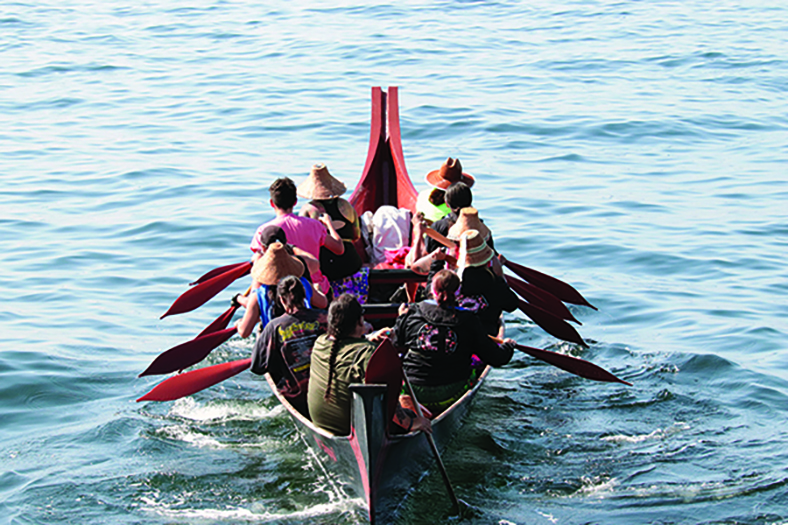
As the day passed, the waterways filled with vessels of all sizes. Canoes had to be weary of everyday boaters and large oil tankers crossing their paths as they made their way. But with a solid effort and everyone pulling as a team, pushing through these pathways may seem a breeze to any onlooker.
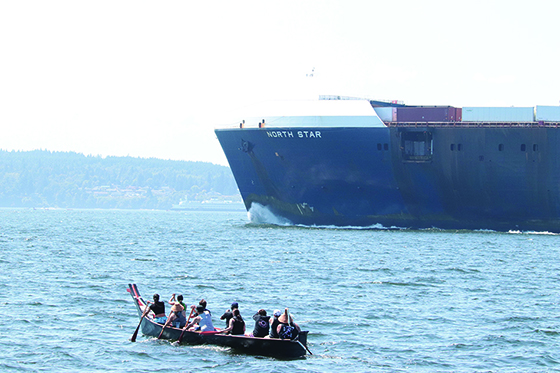
“The most challenging part about pulling a canoe is you will give up mentally before your body physically quits,” said Theresa Sheldon, Tulalip tribal member. “If you get worried, scared, tired, and frustrated, you must deal with that mentally. This is why it is important to sing, laugh, and think positively because the energy within yourself determines the day you will have on the water. Many of us that come together to pull canoe are not family and might not even know each other, but when on the water together, we put the trust of our lives in each other.”
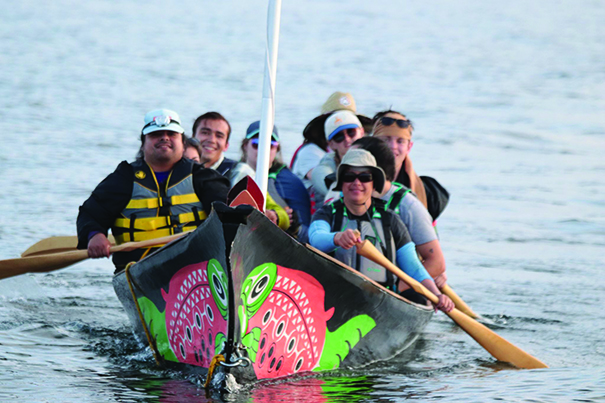
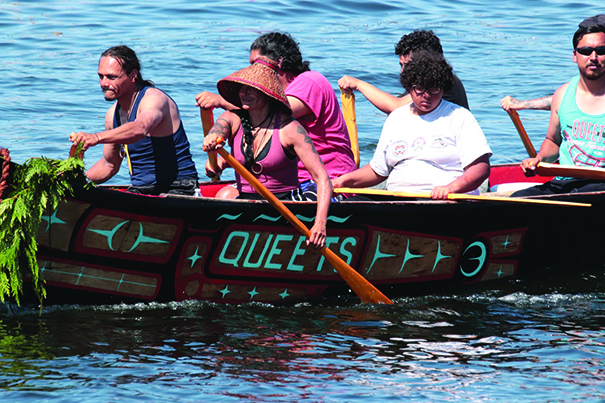
Theresa elucidated, “The water is powerful. The water will humble you beyond words. The water is a spirit. You pray to the water and talk to the water. You can give the water your worries, hurt, joy, and love. You can ask the water for help and guidance. It’s a spiritual process as much as a physical one.”
“My favorite experience this year was pulling with my son,” said Katie L. Jones, Tulalip tribal member. “This year, he pulled all the way from Tulalip to Suquamish. Watching him with his dedication and strength was an experience I will never forget.”
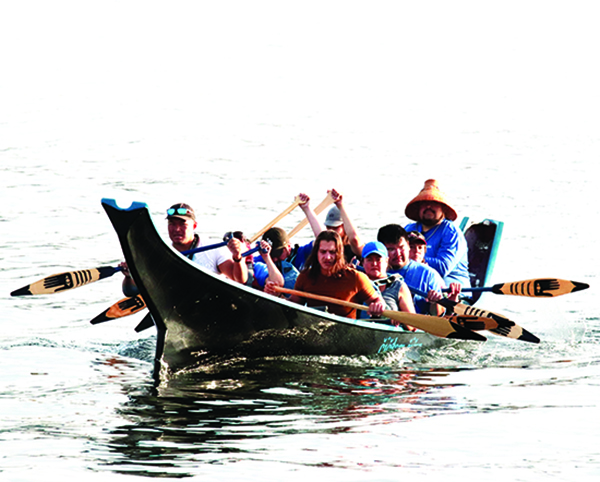
“I yell. When you start to yell around positive things, it starts to ramp up the crew,” said Cory Coiffe of the 7th gen canoe family. “Our 7th gen cheer came out of a spur of the moment and really helped us push. When you arrive at your final destination, there’s nothing but appreciation. You get the time to soak it in and enjoy the other nations involved.”
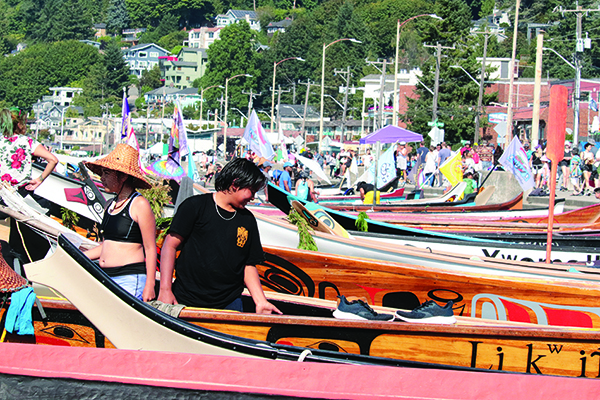
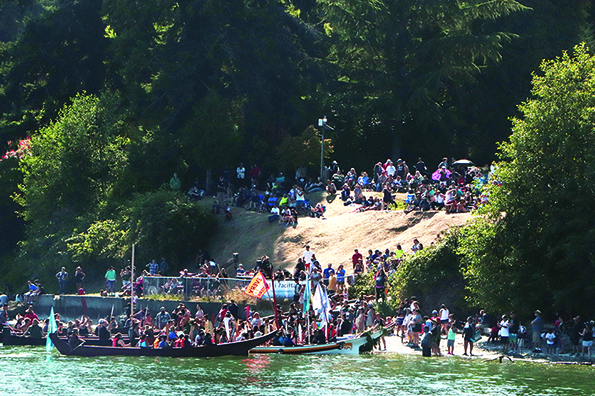
After a long day of pushing themselves and navigating the Salish Sea, the canoes reached their destination at Suquamish. There, canoe families met up with their friends and family to rest, relax, and prepare for their final leg to Alki Beach.